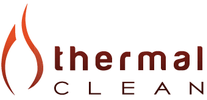As Denver homeowners become increasingly conscious of their environmental impact, many are rethinking how they manage pest problems. Traditional chemical sprays and foggers raise concerns about safety, long-term exposure, and environmental harm, especially for families with children, pets, or sensitive respiratory conditions. Fortunately, eco-friendly pest control isn’t just a trend — it’s a reliable, science-backed approach that aligns with sustainable living and Denver’s unique semi-arid climate.
Denver’s weather, with its hot summers, dry air, and mild winters, creates a distinctive set of challenges and opportunities for pest management. From ants and spiders to bed bugs and cockroaches, the region supports a wide variety of household invaders. But treating these pests effectively doesn’t have to mean sacrificing air quality or increasing chemical runoff. Green pest control, particularly thermal heat treatment, has emerged as a powerful, chemical-free solution that’s as effective as it is eco-conscious.
This guide highlights the most effective eco-friendly pest control methods for Denver homes and explains why heat treatment is quickly becoming the preferred option for environmentally aware residents.
Why Traditional Pest Control Isn’t Always the Best Fit for Denver Homes
Pest control has historically relied on chemical insecticides — often in the form of sprays, baits, and foggers. While these methods can be effective in certain applications, they come with environmental and health trade-offs that many homeowners no longer find acceptable.
Common concerns about chemical pest control include:
- Indoor air quality risks: Residual pesticide exposure may affect children, elderly residents, or those with asthma or chemical sensitivities.
- Water contamination: Outdoor treatments may contribute to chemical runoff into local soil and water systems.
- Non-target impact: Many pesticides harm beneficial insects, such as pollinators and natural predators.
- Pesticide resistance: Over time, pests can develop resistance to common chemical formulations, reducing long-term effectiveness.
Denver’s high-altitude environment and fluctuating seasonal temperatures also limit the window for many chemical treatments. Some products lose efficacy in dry heat or cold snaps, while others must be reapplied frequently — increasing both cost and environmental burden.
For residents seeking safer, longer-lasting solutions, green pest control offers an appealing and increasingly accessible alternative.
Eco-Friendly Pest Control Options That Work in Colorado’s Climate
Green pest control focuses on eliminating pests through non-toxic or low-impact methods. These techniques support both immediate pest management and long-term prevention without contaminating living environments or the surrounding ecosystem.
Effective eco-conscious pest control practices include:
- Integrated Pest Management (IPM): A multi-pronged approach that combines monitoring, physical barriers, habitat modification, and limited treatments as a last resort. IPM minimizes pesticide use while enhancing overall effectiveness.
- Botanical or organic sprays: Derived from plant oils like neem, peppermint, or pyrethrum, these sprays offer less toxicity and break down faster in the environment.
- Trapping and exclusion: Mechanical traps, sticky boards, and physical barriers are used to prevent entry and reduce population without chemicals.
- Beneficial insects: In some cases, pest populations can be reduced by introducing or protecting predator species such as ladybugs or parasitic wasps.
- Thermal heat treatment: For infestations like bed bugs, heat is a non-toxic, highly effective solution that kills pests at all life stages without chemicals.
While each method has value, heat treatment stands out in Denver’s climate for its ability to deliver fast, comprehensive results without repeat exposure or synthetic residues.
Why Heat Treatment Is the Most Effective Eco-Friendly Solution in Denver
Heat treatment, also known as thermal remediation, involves raising the internal temperature of an infested room or area to a level lethal to pests — generally between 125°F and 140°F. Specialized equipment circulates heat evenly to ensure that all life stages of pests, including eggs, are eliminated in a single session.
This method is especially effective for controlling bed bugs, a growing issue in both single-family homes and multi-unit dwellings throughout Denver. Traditional chemical treatments often fail to reach deep nesting sites, and multiple visits are usually required. In contrast, heat penetrates wall voids, furniture, bedding, and carpets — providing complete eradication without leaving harmful residues behind.
Advantages of thermal heat treatment for eco-conscious homeowners:
- Chemical-free and non-toxic: No synthetic pesticides or harmful residues are left behind.
- One-time treatment: Most infestations are resolved in a single service, reducing reapplication needs.
- Safe for children and pets: After treatment, homes are immediately livable with no ventilation downtime.
- Environmentally neutral: Heat leaves no footprint, runoff, or risk to non-target species.
- Works in Denver’s climate: Heat treatment is not weather-dependent and performs consistently in dry, elevated conditions.
Unlike sprays that dissipate or become less effective over time, heat kills pests physically, eliminating resistance and ensuring thorough results — even in hard-to-reach places.
Ideal Pest Scenarios for Eco-Friendly Heat Treatments
While thermal remediation is best known for bed bug elimination, it’s also effective against a wide range of household pests that struggle to survive high temperatures.
Common pests addressed with heat treatment include:
- Bed bugs
- Mites
- Fleas
- Certain types of cockroaches
- Pantry pests such as beetles and moths
For families returning from travel, landlords managing tenant complaints, or homeowners facing recurring infestations, heat treatment offers a trusted, environmentally responsible way to restore comfort without compromising health or sustainability.
It’s particularly ideal for:
- Allergy-sensitive households
- Homes with infants or pets
- Short-term rentals or vacation properties
- Multi-unit buildings where cross-contamination is a risk
In many cases, thermal heat is the fastest way to resolve infestations while upholding an eco-responsible lifestyle.
Building a Long-Term Eco Pest Strategy for Your Home
Green pest control isn’t just about treatment — it’s about prevention. Denver homeowners can significantly reduce pest risks year-round by creating an environment that deters entry and limits attractants.
Eco-conscious pest prevention tips:
- Seal foundation cracks, window gaps, and utility entry points with caulk or mesh
- Keep mulch, firewood, and compost piles at least 20 feet from the home
- Use yellow LED bulbs outdoors to deter flying insects
- Store pantry items in glass or metal containers
- Maintain regular vacuuming, especially in corners, carpets, and upholstery
- Install door sweeps and repair damaged screens promptly
Regular home maintenance combined with green treatment options supports a pest-free home without compromising the air you breathe or the health of your local ecosystem.
Choosing a Provider That Prioritizes Sustainability
If you’re considering eco-friendly pest control in Denver, be selective when choosing a service provider. Look for companies that specialize in green treatment methods and can explain the benefits and process of heat-based pest control.
What to look for in a green pest control company:
- Offers non-chemical and thermal options
- Uses integrated pest management (IPM) principles
- Provides transparent service reports and follow-up inspections
- Has experience with Denver’s climate and local pest patterns
- Is licensed, insured, and trained in eco-conscious treatment protocols
Ask for documentation, testimonials, and a clear explanation of all materials and methods used. A trusted provider will always be upfront and prioritize the health of your family, home, and environment.
A Safer, Greener Way to Eliminate Pests in Denver
Eco-friendly pest control is not only possible in Denver — it’s increasingly becoming the preferred option for health-conscious, environmentally aware homeowners. By leveraging safe, science-based methods like thermal heat treatment and integrating long-term prevention strategies, residents can protect their homes while aligning with sustainability values.
You don’t need to compromise between results and responsibility. With the right strategy and service provider, you can eliminate pests effectively, safely, and sustainably — all while supporting the health of your home and the environment you love.

